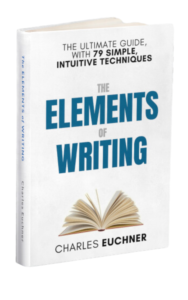This is the fourth part of a four-part series on Titans, by Tim Ferriss. Other parts are listed below:

8. Divergent thinking
Ideas are great; divergent ideas are better.
To give real value to the reader, you need to offer something they cannot predict
You have to be prepared to fail. That’s how you’re going to expand yourself and grow. As you work through that process of failure and learning, you will really deepen into the human being you were capable of being.
I had a grad school professor who pushed me to do research on why Baltimore was the last major American city to build a modern sewer system. Why did everyone else—New York, Boston, Chicago, Charleston—build systems decades before Baltimore? Why did Baltimore take so long? It was, he said, a “deviant case analysis.” You can often learn more from the outliers than from the norms.
Neil Strauss, a former writer and editor for The New York Times and Rolling Stone and the author of The Game and The Truth, is always looking for deviant cases.
He once asked a billionaire about “the way your mind works.” What separates a billionaire from everyone else? “The biggest mistake you can make is to accept the norms of your time,” he responded. “Not accepting norms is where you innovate, whether it’s with technology, with books, with anything. So, not accepting the norm is the secret to really big success in changing the world.”
The biggest mental trap, says Stephen Dubner, the coauthor of Freakanomics, is to allow your moral values to guide your inquiry. Moral values, after all, are conclusions about the world—and you need to go in with an open mind.
“If you try to approach every problem with your moral compass, you’re going to make a lot of mistakes. You’re going to exclude a lot of possible good solutions. You’re going to assume you know a lot of things, when in fact you don’t, and you’re not going to be a good partner in reaching a solution. With other people who don’t happen to see the world the way you do.”
Chris Sacca, an investor in companies like Twitter, Instagram, Uber, and Kickstarter, says to embrace your inner weirdo. That does not necessarily mean acting out, like the class clown. It means taking away the filters of your “polite company” self.
“Weirdness is why we adore our friends,” he says. “Weirdness is what bonds to our colleagues. Weirdness is what sets us apart, it gets as hired. Be your unapologetically weird self. In fact, being weird may even find you the ultimate happiness.
9. Storytelling
At the center of all great thinking is narrative. A great story gives every enterprise a spine, a vehicle for understanding and focus, energy and creativity.
What Scott Adams says about humor probably applies to other forms of expression. Adams is the creator of the cartoon “Dilbert” and a self-taught “master” of the science of communications. All great humor, Adams says, comes from combining at least two of the following six elements: naughty, clever, cute, bizarre, mean, and recognizable.
Stories have a downside. When we tell ourselves distorted stories, filled with grievances and suspicion and resentment and prejudice, we toxify our relationships. We make excuses for ourselves. We get stuck when we cling to old slights and failings. We believe the BS that others pound into us. If we get stuck in the past–especially in negative histories–we cannot take charge of our work.
In our lives as well as in our writing, we have the power to get the story right. Tony Robbins, takes a three-step approach to getting things right. Start with “state,” his term for your emotional frame of mind. You can change your state in seconds if you want to. Simply changing body language can help you shift from sad-sack gloominess to energy and confidence.
Once you’ve got your state right, get your story right. Figure out what tale you’re going to tell by the way you live your life that day. Finally, develop a strategy—identifying options, resources, and paths to follow.
Despite his success, Ferriss acknowledges the way his own stories have blocked his progress. “The stories we tell ourselves can be self-defeating,” he says. “One of the refrains that I’ve adopted for myself, which I wrote in my journal after some deep ‘plant medicine’ work, is: ‘Don’t retreat into story.’”
10. Integrity
And now a few closing words on integrity.
Above all, as the pompous Polonius counsels Hamlet, to thine own self be true.
Or, as Riann Wilson quotes Oscar Wilde: “Be yourself. Everyone else is taken.”
We live in a mad, distracting, self-referential age. It’s easy to get pulled away from your core values. So you have to be vigilant against getting too big for your britches—or the opposite, thinking too little of yourself to take charge of your life.
We are not good judges of ourselves. The vast majority of us, in fact, think of ourselves as above average, in intelligence, looks, humor, and compassion. Naval Ravikant quotes Richard Feynman: “You must never, ever fool yourself—and you are the easiest person to fool.”
As artists—and, pretentious as it may sound, all writers are artists of a sort—we need to avoid getting distracted by all that glitters. Seth Godin, the serial bestselling author, puts things into perspective: “Once you have enough for beans and rice and taking care of your family and a few other things, money is a story. You can tell yourself any story you want about money, and it’s better to tell yourself the story about money that you can happily live with.”
Care not what the other kids on the bus say or do. If you believe in something, do it. Seek out constructive criticism, but do your thing.
“When I articulated that I didn’t care anymore about what anybody thought about what I did except me,” actor Kevin Costner says, “all the weight of the world came off my shoulders, and everything became possible. It shifted to everybody else being worried. Now they’re worried. But everything for me, it shifted to a place where itself free.”


